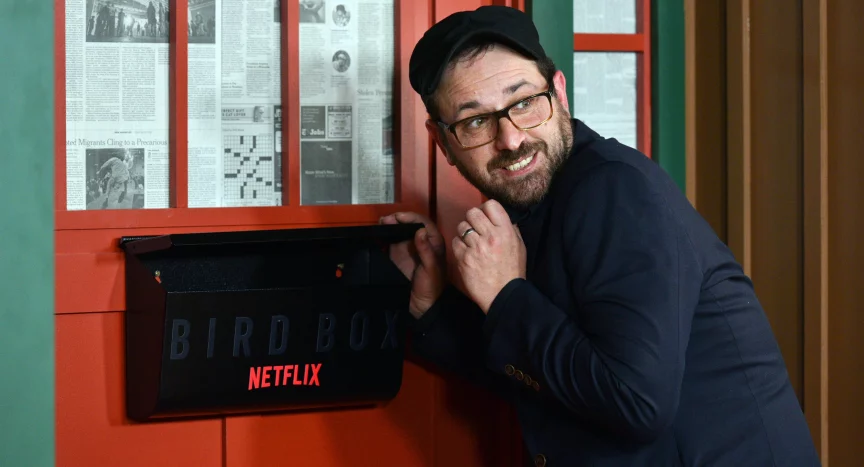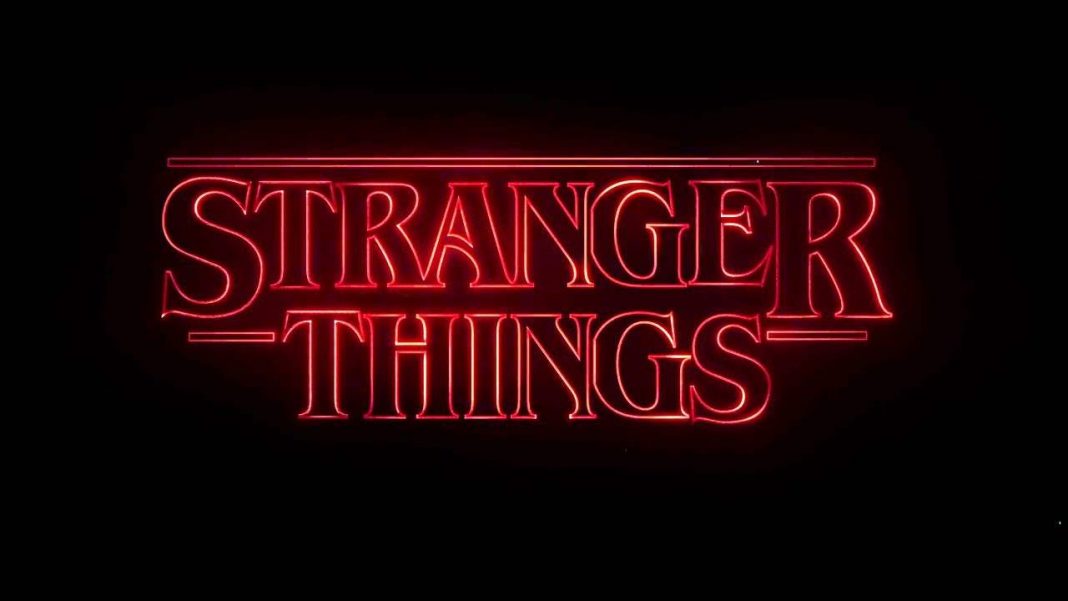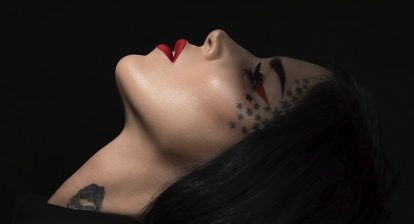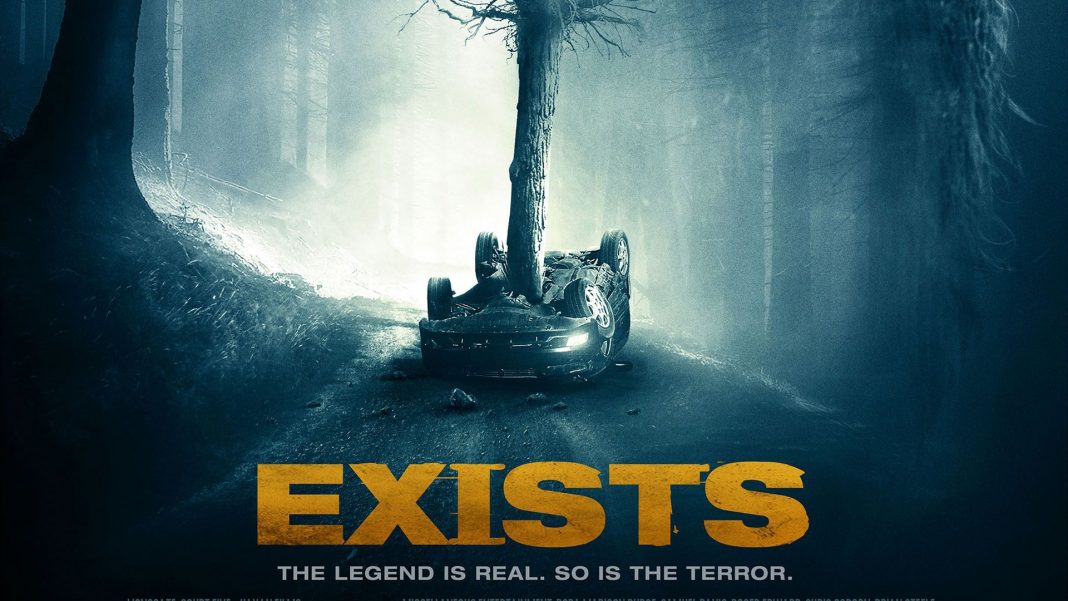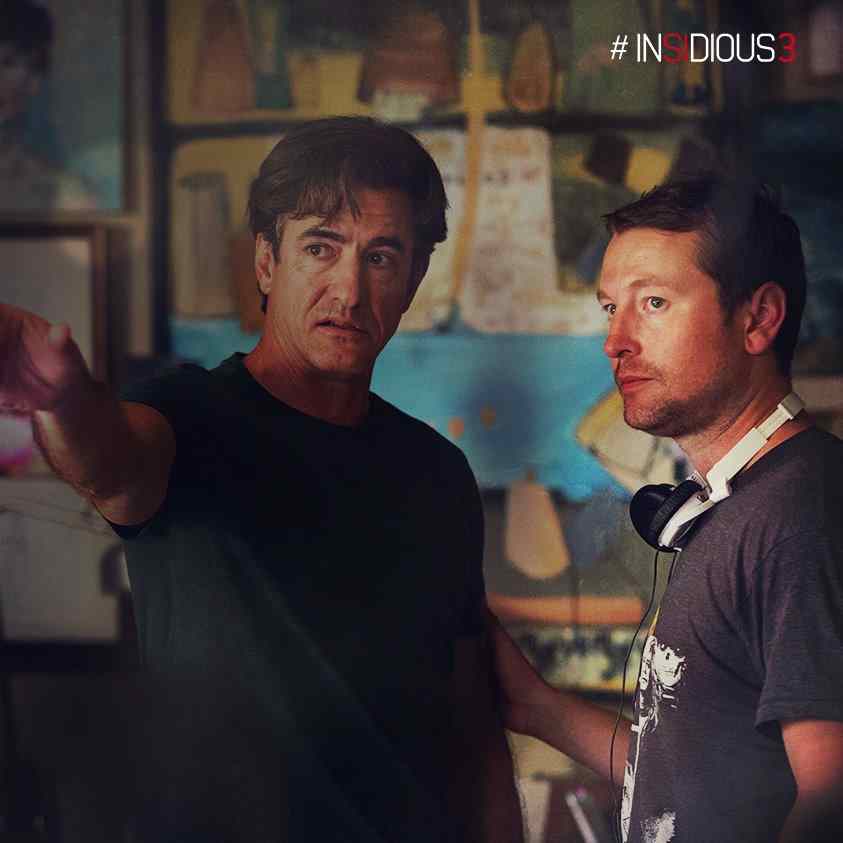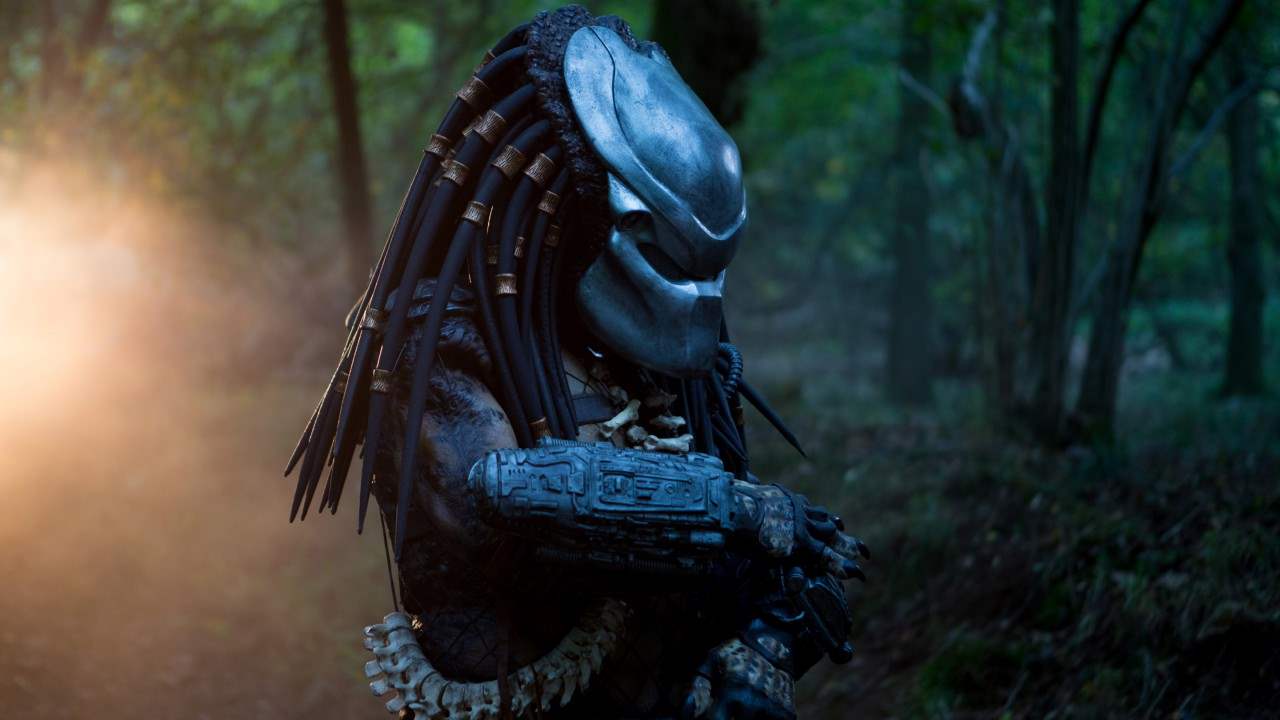Welcome to Written in Blood, a Wicked Horror series where we sit down to have in-depth conversations with novelists and screenwriters in the horror genre. Our first guest is Josh Malerman, author of novels like Inspection, Goblin, Bird Box, and its sequel, Malorie.
Bird Box was critical and commercial smash when it burst onto the scene in 2014, but Malerman wrote more than a few novels before then, dispelling the notion of an overnight success. He continued focusing on his craft even when Bird Box was turned into a massively successful film starring Sandra Bullock and John Malkovich in 2018. But despite major successes in both the book and film worlds (and an in-development Bird Box spin-off), he manages to maintain a fresh and grounded enthusiasm for writing and the horror genre in general.
In the interview below, we chat about Malerman’s beginnings as a writer, transitioning to being a professional novelist, his dedication to craft, the positives and negatives of social media, his love of re-writing, rollercoasters, recent horror recommendations, and more.
Wicked Horror: You got your start when your high school friend, Dave Simmer, who worked with authors and Hollywood properties, asked your permission to send off one of your books to some people in the business.
Josh Malerman: Yes.
WH: You had a friend with a connection to the book world, but you also had put in the years of hard work to have polished manuscripts to show. Was your beginning as a professional writer a mix of luck, timing, and hard work all coercing at the right time?
JM: Oh, absolutely. It was a combination of all those things. I knew Dave from high school and middle school. I knew that he was out in LA doing something. I thought that he was opening a restaurant or something like that, you know? This was all so long ago now. And I was just writing book after book after book and talking about it. At the time it was on MySpace.
WH: Oh man, way back.
JM: Yeah. The first book was finished in ‘04, so we’re talking…that era. And I would just post online like, “Wrapped another rough draft today.” And it was coming every six months or something and I’m in the band [The High Strung], we’re on the road, we’re touring, I’m writing books in the van, all that stuff, city to city. You know, one of my band mates would say stuff like, “You know, why don’t you self-publish?” And I considered it, but back then self-publishing was not what it is now. And there was like a small press in Detroit that was interested in my first book, Wendy, and that was like—I can’t even explain how exciting that was. And…my vision only went as far at that point if I put Wendy out with this guy, my book would be around all the coffee shops around town. And that’d be amazing. And like that truly felt like enough. And I think sometimes now, that still sounds like enough. Like, just to go in a local coffee shop and the coffee shop has any variety or version of your book—a physical copy—would be like fantasy come true.
WJ: Just to know that somebody is reading your stuff.
JM: Yeah, so another lucky thing might have been—and I don’t mean this meanly—was that the tiny press folded. And because of that…I met a woman who did publicity for books. I met her through our band and I would talk to her about what to do…and I never sent the books out to agents, not once. I never sent them out to publishing houses, I never wrote a query letter, I never got a rejection. That’s one of the things that I feel that if I tweeted that, people would be like, “F**k this guy.” But the truth is I was writing in a vacuum for like ten years from like age 29…about a decade of failing and writing [more books]. It’s not like I wrote a book in my office and then Dave came over and got drunk and said, “What’s this? You gonna send it out?” It was a combination of those things. Sometimes I’m haunted by the idea of: what if Dave never wrote?
WH: It’s crazy to think that something so small can have such drastic effects.
JM: In my experience, Bird Box is the greatest thing that’s ever happened to me. So he is thanked in the end of every single novel—like ten novels now. He’s in the acknowledgements of every single one of them because none of this would have happened without him calling.
Did You Know? Wicked Horror TV Has Classic and Independent Horror Films Available to Stream for Free!

WH: Which is really interesting because a lot of times when a book comes out that’s an instant commercial and critical success like Bird Box was, everybody thinks, “Who’s this guy who just burst onto the scene overnight? It must not be hard at all to break into the book world.”
JM: Oh yeah.
WH: But a lot of people don’t realize that behind what appears to be overnight success is a writer who put in 10 years of hard work behind the scenes.
JM: Absolutely. I almost feel like there’s some sort of cosmic barometer—some sort of measurement that it doesn’t matter how you reach it, but you have to endure that before you reach it. So when Bird Box was set to be published, me, myself, and two other authors went to the MoMA in New York City and we were to like give a presentation of our books to like, the press and stuff. This was a horrifying moment, man. Where it’s like my first book ever, you know? And you’re like literally talking to a room full of press people at the Museum of Modern Art in New York City. And the thing that struck me was I had written some 9 books in a vacuum by the time [Bird Box] was picked up and…one of the other authors had taken the same ten years to write one book. And here we were, both of us, introducing our debut novel at the same time. And I thought that was super interesting. It doesn’t matter how it’s done. We both had to pay our dues in different ways.
Also See: Non-Horror Films that Deliver High-Level Suspense Without Gore
At the same time, I do see that Bird Box came out of the gates. I do see it. It’s like, “Oh, wow, right way.” And a movie was made. And not just a movie. The biggest freakin’ movie in Netflix history. We were on set and we were at the premiere and we were—dude, make no mistake. That was…a dream. [laughs]. I mean, it was an absolute fantasy. But…I didn’t get a book deal until I was 37. The book doesn’t come out ‘til I’m 39. The movie doesn’t come out ‘til I’m 44. And I almost feel like that insulated me somehow.

WH: I think that a lot of times when there’s a story of what seems to be someone having early, seemingly overnight success, it’s easy to get sucked into the trap of thinking that everything happens that quickly and that easily. But when success happens later in life, you’re always working towards something.
JM: Yeah, absolutely. And if you haven’t had this moment by 38, 39, you’ve discovered what you’re really doing it for. So, you know, again, for ten years, failing at writing books, on the road, with my band, trying to write novels, not pulling it off…I used to go to [my dad’s] office and ask him to print out the book when I was done. Because at Kinko’s that’d be like…I don’t even remember.
WH: Expensive!
JM: It was expensive, though, to print out 300 pages, you know? It was freaking crippling back then, man. By the time Bird Box came out, there were like 15. [gestures to a stack of manuscripts beside him] Now there’s a crate next to me over here that has 24 more that haven’t come out yet.
WH: Which is really fascinating because any time when a writer is working on multiple books, editing, and submitting to agents, all while working their day jobs, it’s almost invalidated. Whereas in any other industry—law or teaching or whatever—you’d be regarded as somebody who’s hustling and working towards your dreams.
JM: Yeah.
WH: But because you’re a writer and it’s a solitary profession, it’s easy for people to think, “Oh, you making any money from that?”
JM: Yes!
WH: It’s almost like it’s negative!
JM: I know! And I think you used the exact right word—solitary. That there’s a sense of “What’s going on in there? What’s he doing in there? What’s he building in there?” Right? There’s a sense like, “are you all right, man?”
People kind of frown upon the prolific, you know? Because it’s like, how could you possibly mean it? How could you have possibly put your entire soul into this if you’re just going to move onto the next one?

WH: A lot of times you read that a prolific author “churned out” another book. But it could just be happenstance of publishing where titles are backed up or the books had a circuitous route to publication. You’re not just sitting there churning out garbage to collect a paycheck.
JM: Yes. 100%. I know.
WH: It’s super hard because social media has made the world so much smaller. You can’t help but make comparisons to your life and your professional goals when everyone else’s are so transparent and you think, “Maybe I’m not doing the right thing if my career trajectory doesn’t match so and so.”
JM: Yes! I know. It’s not easy, right? I really, really, really try to keep envy to a minimum, you know? I have amazing things going on with books and I’ll see something online from someone else and be like, why isn’t that happening to me? Like, what are you doing? Just relax! It’s totally a natural reaction and we’ve never really had it quite like this before…I didn’t even have a cell phone until I was 31, let alone social media.
WH: Which is also great because you didn’t have that distraction while you were writing the bulk of your earlier works.
JM: Who knows what else comes from that real life interaction? Because at some point you’re like, how much has social media actually helped me or not?
WH: Speaking of interacting with people, you’re used to being in front of a crowd, both with author readings and your band, so what was it like for you to have to eliminate crowds and gatherings of book- and music-loving people for the past two years? How much have you missed live events and feeding off that energy?
JM: Absolutely…I didn’t realize how much I missed it until we were all in person and it was just like filling a gas tank. It really was. It was like, “Holy s**t, we need this, Allison”…and then the last thing was I think the way that I figured out how to combat that was Carpenter’s Farm, which is a book that I wrote as live as you could write a book. It’s on my website now and it’s literally free. And I would write a chapter, rewrite it, post it. Two days later, post the next chapter. It was a performance. It was like a live show. You didn’t have the band shows, you didn’t have the readings, but Carpenter’s Farm got me through a few months of the early days of the pandemic.
WH: I guess one of the positives to have all that time at home is the amount of time you had to work on new drafts. In the afterward to Malorie, you talk about how much you love getting into the nitty gritty of re-writing and the drafting process. What is it about the process that you love so much when other writers dread it?
JM: To me, it’s the equivalent of making an album…you’re literally hearing the song get better. There’s a side to me that would just release every demo and rough track. There is a side of me that’s like, “oh, who cares?” It’s fun!
WH: See what happens!
JM: Yeah, but when you’re sitting there rewriting and you’re literally seeing every sentence get better, it’s like an amazing feeling. It almost feels like you’re cleaning your room or rearranging your books or like…it feels like, like, whew. Okay. Everything’s in order now. It’s cleaner. And sometimes I get embarrassed thinking how my manager read the rough draft of certain things, you know? … The hardest one was Ghoul N’ the Cape which is like a giant, giant book. I think the word count is over 300,000. And Bird Box is like 68,000. So to get to page 400 of the rough draft of Ghoul and to know you still had 700 [pages] to go, for a moment I started to freak out: I don’t know if I can f**kin’ do this anymore.
WH: It’s daunting when it’s something that big.
JM: You kind of have to reach this Zen…and time will pass either way.
WH: And every ten pages, reward yourself with a cookie
JM: Yeah, that sounds amazing. [laughs] I would like one right now.
WH: I’m a big fan of rollercoasters and saw on your Twitter that you recently took a detour to ride some [at Busch Gardens]. Is that another passion of yours?
JM: Okay, so, no. But my fiancée Allison is like a lunatic like that. She is the thrill junkie and she was like, “I’m gonna get you to go on a couple rollercoasters.” And I’m like, f**k, I haven’t been on a rollercoaster since I was like 16, you know? And so we went on one. Have you been to Busch Gardens?
WH: Yes.
JM: There’s one where half of it is like in the dark, like in a giant enclosed building so you literally don’t know when you’re about to fall. You have no idea how high up you are or if you’re spinning. You’re just in the dark. That was the first one I went on. And afterwards I was like, yeah I’m done. That’s it! I’m done!
WH: Have you ridden the Kingda Ka [in Cedar Point]? It’s over 400 feet tall and goes from 0-125mph in under three seconds. It’s like a 30 second ride because it’s so quick.
JM: Was it horrifying?
WH: It was insane. You have no time to be afraid. So if Allison is a big fan of coasters, she’d love it.
JM: Cedar Point has a special place in my heart. A friend and I skipped high school and went there one day. It’s that kind of joy.
WH: Speaking of fear, there are lots of interesting things happening in the horror space in books and film. Is there anything in the genre that you’ve recently loved and would recommend?

JM: A guy that seems to be just getting better and better to me is Ronald Malfi. He’s really good. There’s certain authors that have such a control over their voice…and you can’t help but be super impressed. He’s one of those where it’s almost a craft thing. But I read Kathe Koja’s Dark Factory, but like, there’s so many voices right now. Alma Katsu’s great. I love Andrew Michael Hurley. Did you read The Loney?
WH: No.
JM: Read that one. There’s a couple authors to me that are just super, naturally unsettling. And that guy, Dathan Auerbach? Did you read Penpal?
WH: No. you’re giving me all kinds of new ones.
JM: Yeah, yeah, Penpal. From the word go, you’re like, oh, man. Like, you don’t even know what’s making you feel weird. Another guy like that is Iain Reid—I’m Thinking of Ending Things. You don’t know exactly what’s going on, but it’s freaking unsettling.
WH: Have you read Elvira’s memoir [Yours Cruelly, Elvira] that came out in October? It’s so good.
JM: Oh, dude! Yes! It’s like so f**king good.
WH: It reads like fiction and that’s what makes it so compulsively readable.
JM: It’s one of my favorite autobiographies I’ve ever read. This is gonna sound cheesy, but I’ll put books that were special to me next to my book on the shelf almost to like, rub off some magic, and this is the one that is next to Bird Box.
WH: Well, Josh, this was a ton of fun. Thanks so much for taking the time to chat.
JM: Thank you. This was truly fantastic. Thank you.
[This interview has been condensed for content and clarity]
